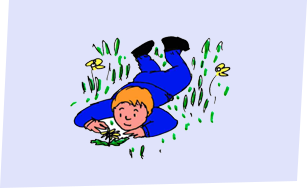School Improvement Planning
Every year, and throughout the year, we review and revise our school areas for improvement that have arisen from our self-evaluation activities, including monitoring and assessment.
In the current school year, our main areas for development and improvement are:
1. To continue the work we have started on our curriculum plan, ensuring that the appropriate progression, breadth and repetition (a “spiral” curriculum) is embedded in every subject, with skills and knowledge linked in a meaningful way and revisited and consolidated:
We will continue to build on our curriculum plans in individual subjects, as exemplified in our school-developed planning in Geography, and Art and Design, and in Maths and Phonics, which use published schemes:
We will embed the use of external programmes in Design and Technology, Computing and PE.
We will focus on developing our own plans in Science, History and RE.
We will ensure that our planning and assessment in the foundation subjects enhances learning, through a greater clarity in the learning objectives and steps to success in these subjects.
We will develop the skills of our new subject leaders so that they are enabled to be advocates for their subject and have impact on the teaching and learning.
2. Embed the “Little Wandle - Letters and Sounds” programme, which was introduced and resourced in 2021-22, ensuring that there is consistent delivery and resources across the school:
We will ensure reading is prioritised, enabling all children to read confidently for meaning, regularly enjoying reading for pleasure and reading purposely in different subject areas, equipped with the tools to tackle unfamiliar vocabulary.
We will ensure that children are given interventions and support to keep-up and catch-up, when they have gaps in their phonic knowledge or when they join the school mid-phase.
We will support parents to help their children, through reading workshops, access to online guidance, access to e-books which are phonetically decodable and tailored support where needed.
3. Further improve teaching and learning across the curriculum, embedding strategies that will help children to access a full and rich curriculum:
We will ensure strategies to promote recall and long term memory are used consistently across the school, including presenting new materials in small steps; asking questions and providing models.
We will ensure all children develop at least the basic transcription and composition skills in Writing, with appropriate use of modelling and transcription in teaching to support this.
We will embed numerical fluency in our children, through further embedding daily White Rose Maths and Maths Mastery sessions across the school.
4. Focus on the personal development of the children, further building on their positive attitudes to learning and their good behaviour:
We will ensure that we pick up on our systems for identifying children who have frequent periods of absence, and provide parenting support to address such issues as parental anxiety and children’s independence. We will target children who are identified as having persistent absence, understanding the reasons for this and providing intervention where necessary.
We will reinvest in our books, visual resources and the school environment to ensure they reflect the diversity of our school community.
We will consistently use pupil voice as a valuable aspect of formative assessment, and to promote the children’s learning of language/vocabulary.
We will review our systems for welcoming new families to the school, ensuring a smooth transition into our community and curriculum.

